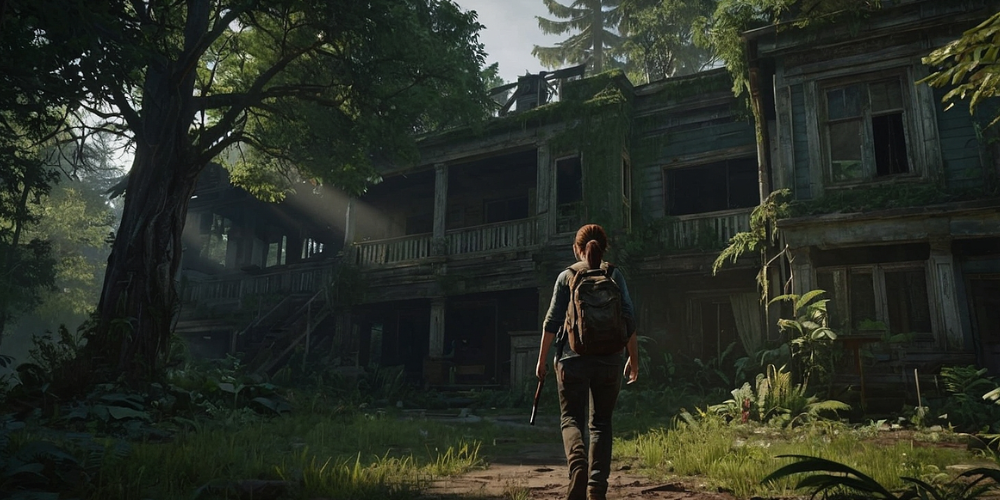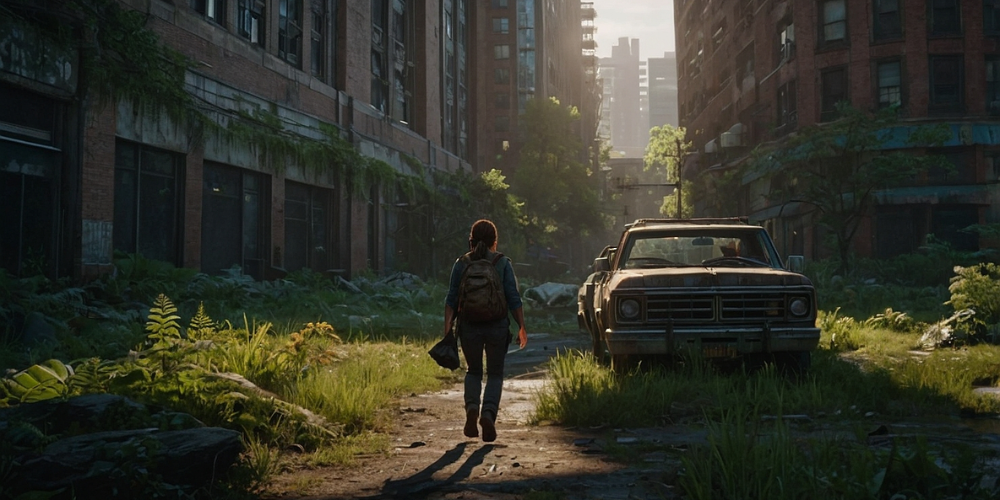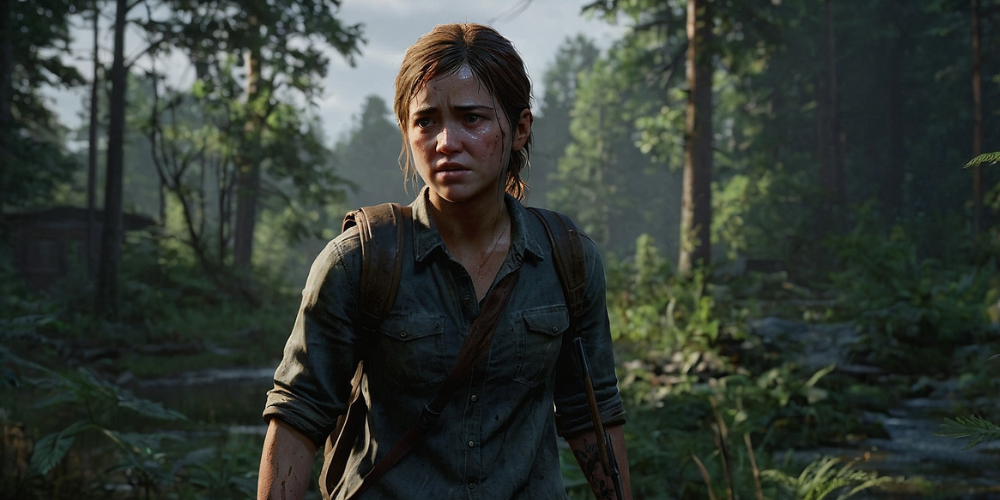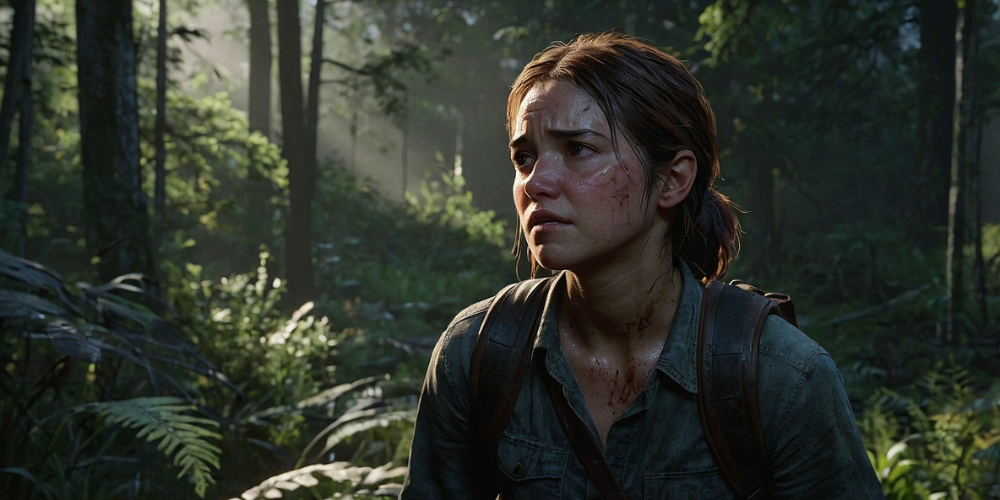Ethical Dilemmas and Survival Themes in The Last of Us Part II
Nov-08-2024

As I navigated the desolate landscapes of The Last of Us Part II, I was struck by how the theme of ethical dilemmas permeated the entire narrative. Set in a world ravaged by a fungal infection that turned people into vicious creatures, I witnessed characters constantly grappling with the moral implications of their actions. From the outset, it was clear that survival often meant making decisions that challenged not only the characters' beliefs but also my own as a player.
The Complexity of Revenge
The game dives deep into the theme of revenge, and I found myself torn as I controlled Ellie, who was consumed by her desire to avenge a profound loss. Every step I took mirrored her internal struggle. Did I support her quest for revenge, knowing it would only lead to more violence, or should I question whether this cycle was worth perpetuating? Each moment I spent in her shoes brought to light how revenge can distort one's humanity.
Friendship and Betrayal
Ellie’s bond with Dina added another layer of complexity. Their friendship flourished in the midst of chaos, showcasing the importance of companionship in a world where trust is a rare commodity. Yet, as betrayals and secrets emerged, I found myself questioning everything I thought I knew about loyalty. Was Ellie justified in putting her quest above their relationship? I battled with these thoughts as the narrative unfolded.

The Impact of Choices
One of the most compelling aspects of The Last of Us Part II is how choices affect relationships and the world around me. I often wondered if my decisions were leading Ellie down a path of righteousness or destruction. This gave rise to a pervasive sense of guilt; every time I took a life, I felt the weight of that decision. The game effectively forced me to confront the reality that survival could come at the cost of my morality.
Cycles of Violence
The narrative doesn’t shy away from highlighting how violence breeds violence. I saw this firsthand during tense encounters, where each firearm crack echoed the ethical dilemma of whether to fight or flee. The world was brutal, yet I was repeatedly reminded that each life taken contributed to a cycle that was nearly impossible to break. I couldn’t help but reflect on the broader implications of such a truth—was there ever an end to this cycle?
The Human Cost of Survival
Every time I watched a character struggle or suffer, I realized that survival wasn’t just about physical endurance; it was about maintaining one’s humanity amidst the chaos. I witnessed individuals make gut-wrenching sacrifices for their loved ones. In those moments, I pondered the price of survival—was losing my moral compass worth it for the sake of living another day?

Love and Loss
As Ellie navigated her journey, the theme of love became a persistent undercurrent. The relationships she formed, including her profound love for Joel, added depth to her motivations. However, the heartbreaking losses she faced forced me to confront how love could, paradoxically, lead to both strength and vulnerability. I was left wondering if love could truly conquer the despair surrounding them or if it only served to amplify their suffering.
The Weight of Grief
Grief is a powerful emotion that plays a pivotal role in the characters’ arcs. As Ellie’s story unfolded, I felt the sharp pang of loss with her, each memory of Joel haunting her choices. Grief fueled her motivation for revenge, yet it equally clouded her judgment. I found myself reflecting on how grueling it was to move forward when those we hold dear are gone, and whether the choices made in grief are ever truly justified.
Morality in the Facing of Adversity
Ellie's journey forced me to confront the notion of morality itself. In a world stripped of societal norms, the definitions of right and wrong became blurred. There were moments where I questioned the motive behind my actions—is it better to survive as a monster, or to fall in battle with one's principles intact? This internal conflict lent a profound weight to every encounter and choice I made.

The Cost of Compassion
Throughout my gameplay experience, I encountered various factions, each with their own beliefs and morals. I found myself contemplating the value of compassion in a ruthlessly competitive environment. When choosing to show mercy, I often wondered if I was jeopardizing Ellie’s safety and that of those she loved. This constant push and pull between compassion and self-preservation raised questions that lingered after I set down the controller.
Survivors and the Society They Create
As I delved deeper into the story, I noticed how survivors either cultivated a sense of community or succumbed to paranoia and betrayal. This juxtaposition struck me, as it highlighted how adversity can unite individuals or tear them apart. I watched as Ellie navigated both worlds—a dichotomy of trust versus suspicion. I questioned how I might respond under such pressures and what values I would hold onto in order to survive.
The Idea of Justice
Justice, or the idea thereof, is another recurring theme that challenged my morality throughout the game. As I witnessed unspeakable acts unfold, I grappled with the notion of whether Ellie’s pursuit of justice could ever truly be justified. Was her journey about righting a wrong, or was it merely an excuse for revenge masked in the language of justice? Each encounter stirred these questions in my mind as the narrative relentlessly unfolded.
The Role of Memory
Memory plays a crucial role in driving Ellie’s motivations. The vibrant flashbacks of joy juxtaposed against the bleak current reality illuminated how the past clouds present actions. I often pondered how memories shape our actions and decisions, especially in a world where the past serves as both a refuge and a relentless reminder of pain. These can become burdens that weigh heavy on the spirit, complicating the journey forward.

Interconnected Stories
The Last of Us Part II unfolds numerous interconnected stories that converge, each highlighting various ethical dilemmas. As I explored the backstories of different characters, I began to see the nuance behind their motivations. I became acutely aware that survival often comes at the expense of another’s humanity. This realization shaped my understanding of the broader narrative and echoed the complexities of human nature.
The Consequences of Decisions
The weight of consequences loomed large over Ellie’s choices like an ever-present shadow. Each decision impacted not only her journey but also the lives of those she crossed paths with. I found myself contemplating how decisions, once made, cannot be undone. The game left me with a lingering sense of anxiety about the path Ellie was treading and the impact of her choices, both immediate and far-reaching.
The Fragility of Hope
Hope is an elusive concept in The Last of Us Part II. As I traversed the dark narrative landscape, I discovered that hope flickers and wanes in the wake of suffering. Characters often grapple with this feeling of hopelessness, which rendered every act of kindness and connection profoundly significant. I began to understand that hope can be a driving force, even in despair, yet it often dances precariously alongside fear and uncertainty.
Humanity Amidst Chaos
Despite the grim environment and ceaseless obstacles, there are pockets of humanity that breathe life into the narrative. Instances of compassion and unity act as powerful reminders that, even during the bleakest periods, the core of our humanity can prevail. As I watched Ellie navigate her trials, I realized that clinging to humanity is perhaps the truest form of survival. This ultimately painted a complex picture of what it means to live in a world where dystopia reigns.







